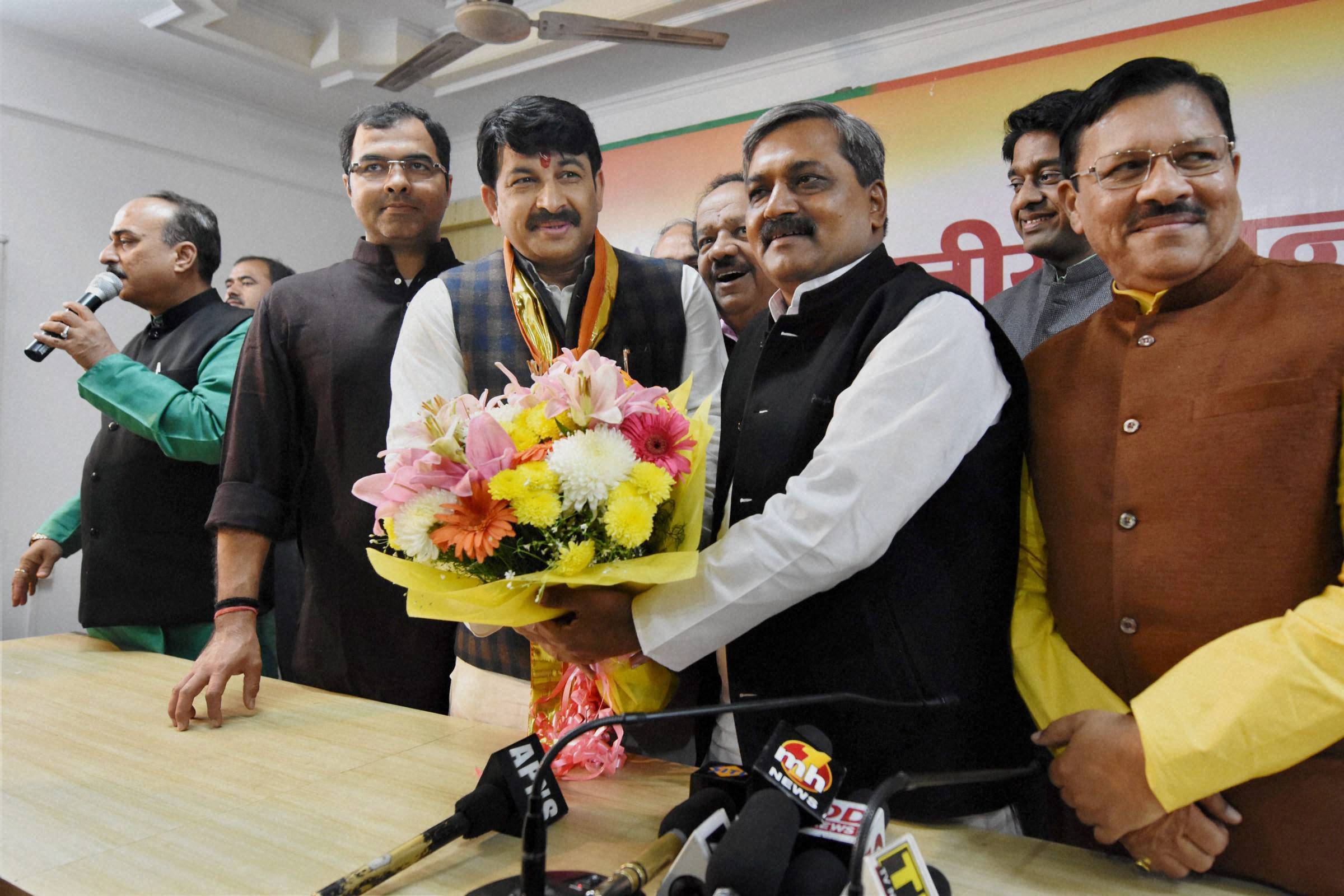
New Delhi: BJP on Wednesday appointed Nityanand Rai and Manoj Tiwari, both first time Lok Sabha members with contrasting background, as chief of its Bihar and Delhi units respectively, a decision seen as part of its effort to reach out to constituencies outside the party's traditional base in the two places.
Rai (50), a three-time MLA before he was elected to the Lok Sabha in 2014 from Ujiarpur in Bihar, has risen through the ranks, having been in Akhil Bharatiya Vidyarthi Parishad, the students wing of Rashtriya Swayamsevak Sangh, and then the Bharatiya Janata Yuva Morcha, BJP's youth wing, before being elected as an MLA for the first time in 2000.
Unlike Rai, Tiwari (43) is a rank outsider to the state put under his charge. He had joined the saffron party just before 2014 Lok Sabha polls. He had earlier contested from Gorakhpur Lok Sabha seat on Samajwadi Party ticket in 2009 and lost. The party top brass believes that Tiwari, a popular figure, especially among the numerically important constituency of migrants from Bihar and eastern UP, will infuse fresh energy and dynamism into the Delhi unit, which is at a low ebb having suffered successive defeats in the last two assembly polls.
A well-known Bhojpuri singer and actor, Tiwari had won from Delhi North-East constituency, which has a large migrant population. His appointment underlines party's attempt to reach out to the ever-swelling number of the migrant electors, who mostly voted for Aam Aadmi Party in the last assembly polls.
Rai is an organisation man, who enjoys the trust of BJP's state leadership. Despite being a Yadav, a loyal support base of Rashtriya Janata Dal chief Lalu Prasad, and thrice having got elected as MLA from Hajipur, which has significant presence of people from the community, Rai stuck with BJP.
In a state dominated by Mandal politics, his appointment highlights BJP's attempt to reach beyond its traditional support base of upper castes and some sections of OBCs. Rai replaces Mangal Pandey, while Tiwari takes over from Satish Upadhyay, both Brahmins. Their tenures were long over and new appointments were awaited for the some time.